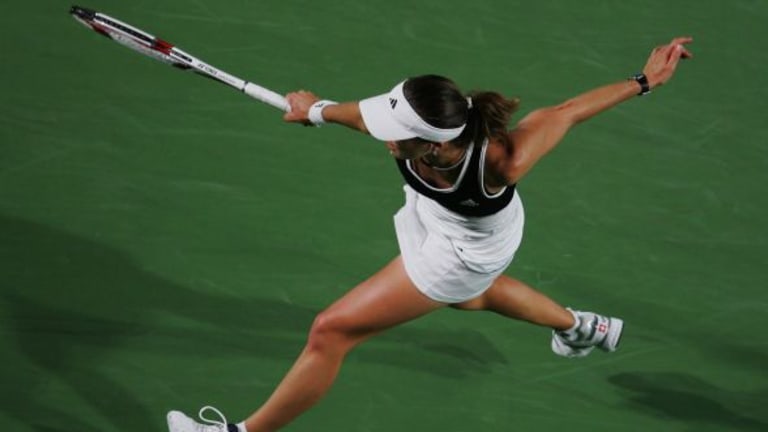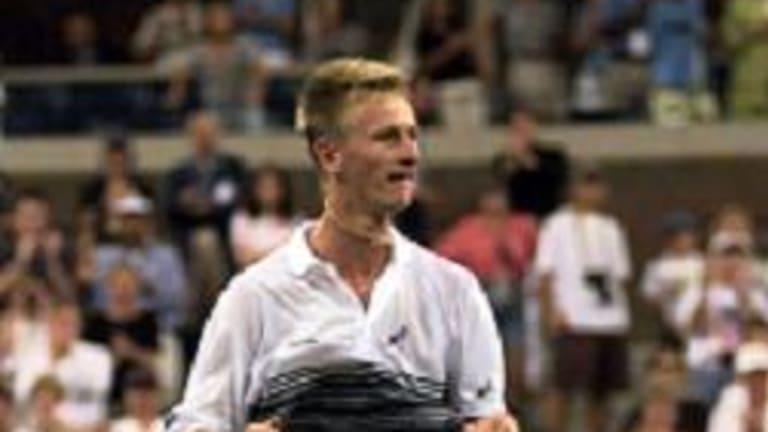Housekeeping note: Make sure you tune in tomorrow morning for an important, happy announcement that is sure to bring a smile to many of your faces! - Pete
As most of you already know, the ITF independent Anti-Doping Tribunal handed down its decision in the case against Martina Hingis yesterday. The Tribunal categorically rejected Hingis's appeal. Hingis, the 3,456th consecutive athlete who, after testing positive, vociferously denied the charge and proclaimed her innocence, has been suspended for two years - which has become a moot point given that Hingis also announced her retirement shortly after the original doping charge was made public.
I urge you to read the entire report of the Tribunal. I found that some parts of it read like the script of a Monty Python movie. There's this whole thing about the doping control officer being "Mr Snowball" (his wife, Mrs. Snowball, was the one who actually supervised the urine-sample delivery process). And how about that bit (paragraph 36) about how Mr. Snowball thought it "strange" when the Firekitten gave Mrs. Bosanquet a kiss. Anyway. . .
I'd be the last person to advocate lynching people who have used or even just tried cocaine (among other things it would make me a horrible hypocrite, wink-wink), but the recreational drug is a prohibited substance and, at the end of the day, either you have rules or you don't. (Excuse me, I need to run to the men's for a moment!). Many people will think it a shame that this positive drug test will become part of the Hingis legacy, but something that came up while Pete Sampras and I were working on his book has led me to re-consider that (Back in a sec, where the hail is that danged Kleenex?).
You may remember that Petr Korda won the 1998 Australian Open (it was his only Grand Slam singles title, and in winning it he prevented Marcelo Rios from taking one) and rose as high as No. 2 in the world rankings. Months thereafter, after a drug test administered at Wimbledon, he became the first high-profile tennis player busted under doping rules that finally acquired teeth when tennis became an Olympic sport again (in order to be an Olympic sport, tennis must embrace the stringent drug-testing policies of the International Olympic Committee). Korda tested positive for nandrolone, which is to dopers what a Big Mac is to fans of fast food. Banned for a year, Korda (like Hingis) basically said "To hail with it", and left the tour.

